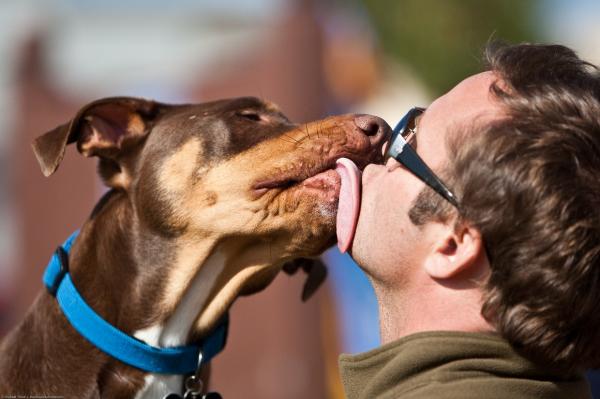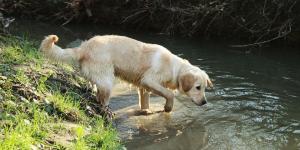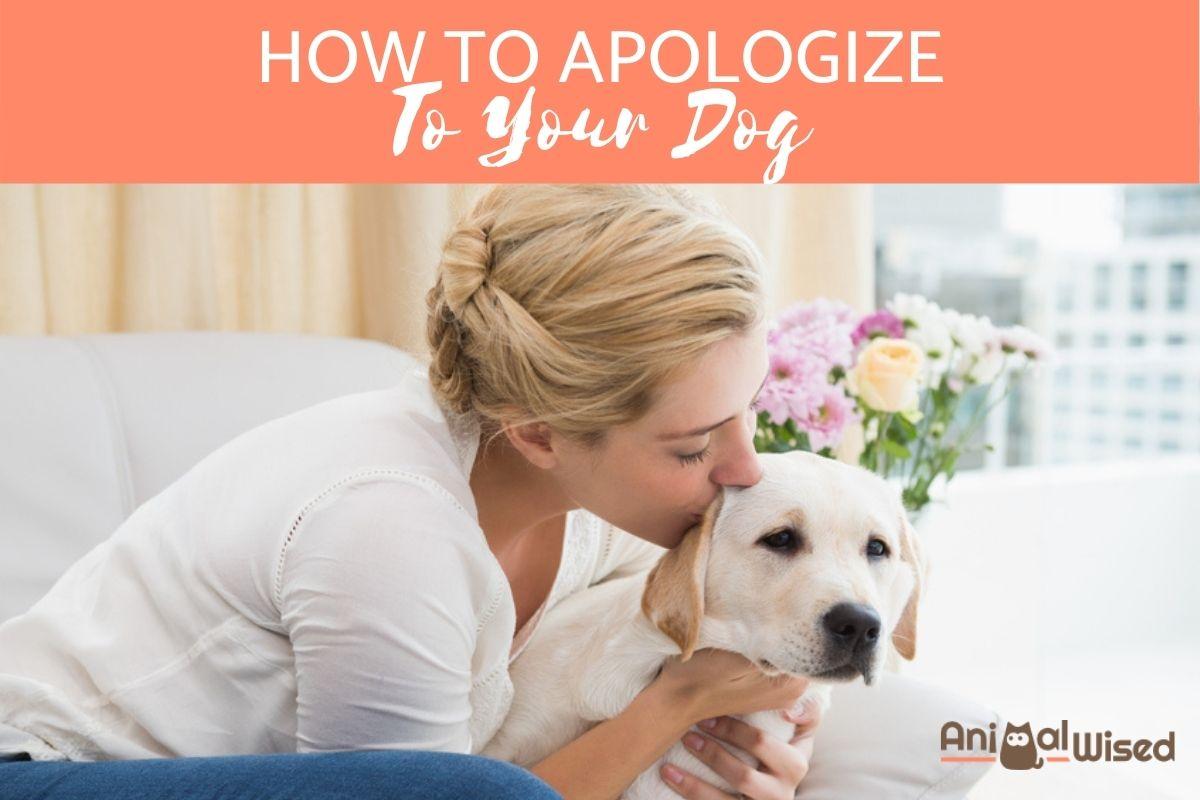Apologizing to a Dog: What Is the Best Approach?



See files for Dogs
Living with a dog provides many great experiences thanks to beautiful, long-lasting friendships. However, conflicts can happen when we share our home. The dog may become stressed if we don't pay enough attention or they may develop behavioral issues due to a number of factors. This can lead to frustration and it is common for us to scold dogs when they do something we perceive as wrong. We may also do something wrong to them by accident such as standing on their tail. When this happens, we often feel the need to apologize.
If we train our dog through positive reinforcement, we may fear the dog has interpreted our bad reaction as a way to tell them they're doing something wrong. So, how do you apologize to your dog? What is the best approach to do so? Stay with us at AnimalWised and find out.
Should we apologize to our dog?
It is improper to confuse human and canine emotions. Although dogs are beautiful, courageous, loyal and loving creatures, they do not see the world in the same way as we do. For example, some people think that dog's look around when they poop out of embarrassment. However, dogs cannot feel shame the same way as we do. In these cases, they are only looking around to see if there are any threats in their environment.
Similarly, when we do something bad to our dog, they may not understand it in the same way. This is especially the case if it happens after the fact. For example, if we did something to our dog earlier in the day, but we apologize for it later, it is unlikely they will be able to connect the apology with the specific action.
The same thing happens when we tell a dog off. If we do it after the fact, the dog cannot associate the scolding with the action which prompted it. It can cause the dog to think their normal behavior is bad, which can be very stressful. When we apologize and say sorry if we have behaved badly towards the dog, they similarly won't know why you are doing so.
Can a dog understand an apology?
Although we may not necessarily need to apologize, our attitude toward the dog means everything. If we do something harmful to our dog, then showing them that we didn't mean to hurt them is very important. If we hurt them and then don't care, the dog will start to feel as neglected. Our dog may not be able to understand an apology, but they can feel love and affection.
This means we don't need to apologize as much as we need to provide positive reinforcement and a caring influence. This can be seen when we scold our dog. Scolding our dog is most often counterproductive. Better is to find positive ways to educate the dog into behaving properly in the future..
Dogs walk below us and it can be very easy to injure them accidentally. Similarly, although a healthy dog should be tolerant of young children, roughhousing can lead to a pulled tail or other unintentional harm. The first thing we need to do is make sure they are not hurt. If they are able to move and don't cry after the initial fight, they should be OK. If you notice a cut, limping, bruising or other signs of pain in dogs, then we should call a veterinarian.
Although we shouldn't shout or physically reprimand our dog, we do need to educate them. Many guardians make the same mistakes when scolding a dog. The result, over time, is that they become scared of you and can develop behavioral problems. If your dog behaves badly, it is better to redirect their attention to something positive or to ignore them. You can then offer a reward when they behave correctly.
Dogs can understand humans. They may not understand our language, but they create positive and negative associations with words. Your dog knows perfectly well that ‘good boy’ is a nice thing to hear - and especially when we use the right tone. Studies have found that dogs respond better to women trainers because they have higher-pitched voices, which they find more comprehensible and pleasing.
If you want to apologize to your dog, talk to them calmly and soothingly with a slightly high-pitched voice, the one we tend to use when talking to babies or puppies. You don't have to say "sorry", but the words that you usually use to reward your dog when they behave correctly, such as "well done" or "good boy". This way, the dog will understand they have done nothing wrong. Pet them and maybe play a short game together.
When you have lived with a dog for a while, you notice how they are able to pick up your moods: dogs are playful when you are active and cheerful, and they notice and comfort you when you are sad, because they see you as a member of their pack. Your dog doesn't understand the word sorry, but they do know when you are angry or happy.

How to apologize to a hurt or scared dog
Sometimes, dogs can get seriously scared when their owners hurt them by accident. This jumpiness is more common in shelter dogs that have lived in abusive homes, as they tend to mistrust humans . Rightly so, we might add.
If you notice your dog is hiding in a corner and refuses to come near, you can calm them down by talking to them soothingly. Calling them from a safe distance will help to build trust. Respecting the dog's space, call them and let them come close when they feel like it. If that doesn't work, you can use treats.
Despite what movies might make you think, making a clear trail with treats from where they are to you does not work. Dogs see straight through that. Instead, place the treats in different directions and distances. Eventually, the dog will understand where the treats are coming from and stop seeing you as a threat.
Once the dog feels comfortable enough, ensure you maintain an approachable and sedate demeanor. Your actions and positive attitude will help them to feel relaxed, something which will work as a better apology than saying ‘sorry’.

Is it good to use treats to apologize?
Treats for dogs are good as training tools, and as a way to gain their trust back in serious situations. However, you should not give your dog snacks or new toys as a way to apologize. Positive reinforcement consists in rewarding good behaviors, such as learning a new command. But if you give your dog treats when you feel sorry, you are rewarding your dog when they haven't done anything and it would send a mixed signal.
To be coherent in your training and avoid confusing your dog, apologize by talking soothingly, petting them and perhaps playing for a while, but do not give any physical rewards.
All in all, can you apologize to your dog if you accidentally hurt them? Sure, you can, but you will probably have guessed that it is more for your benefit than theirs. Most important is to provide positive actions and to ensure you don't do anything you will feel the need to apologize for down the line.
As we have stated above, scolding your dog is usually counterproductive. If you think it is OK to scold your dog, look at the video below to see the mistakes you are likely making:

If you want to read similar articles to Apologizing to a Dog: What Is the Best Approach?, we recommend you visit our Basic education category.






 Really really worth reading. I learned a lot. I also appreciate the kindred spirit way of instructing readers
Really really worth reading. I learned a lot. I also appreciate the kindred spirit way of instructing readers



